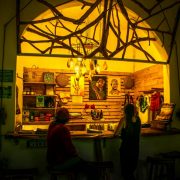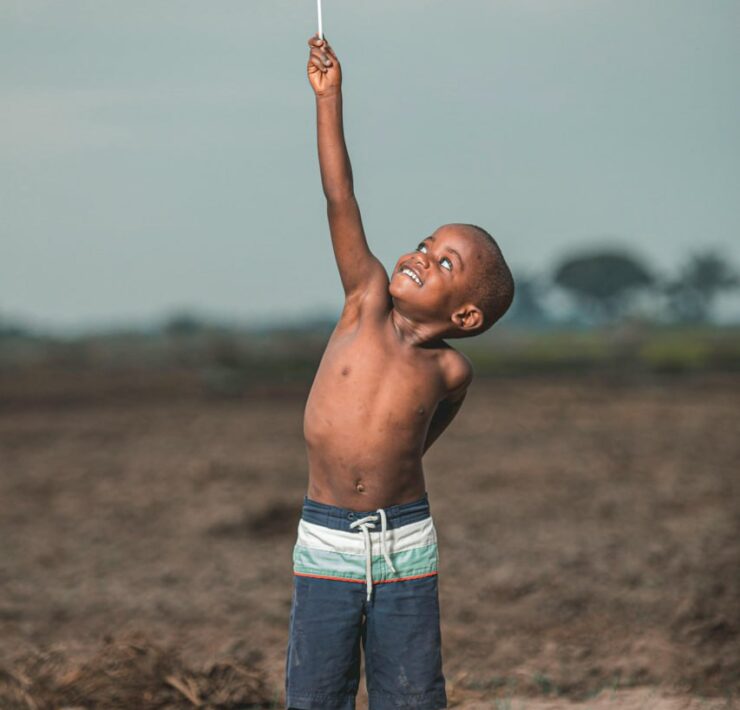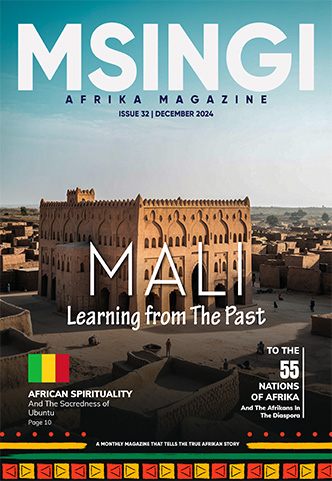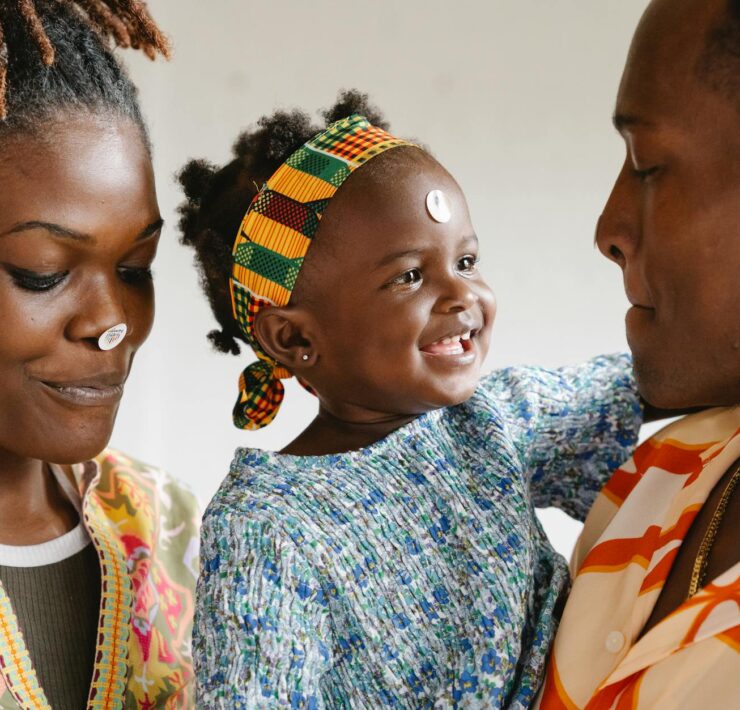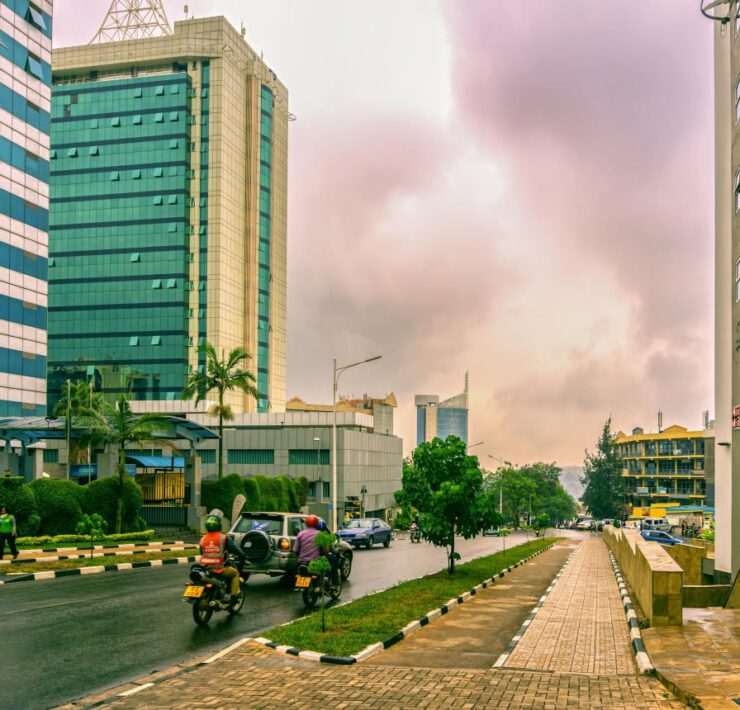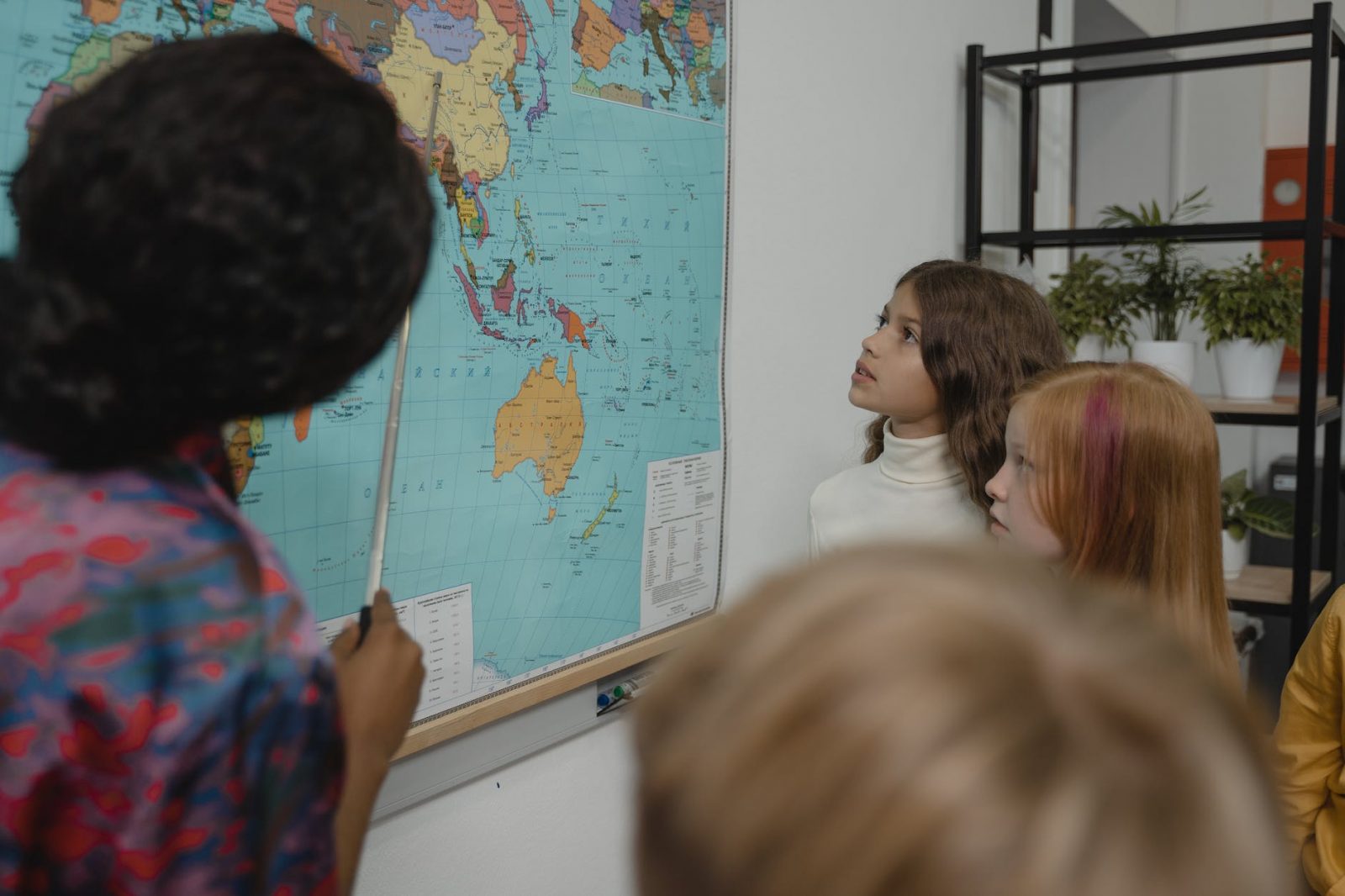
Samuel Phillips is a writer, graphic designer, photographer, songwriter, singer…
A short while ago, I saw a meme on Facebook about education, titled HOW TO DESTROY A COUNTRY. The meme says: At the entrance gate of a university in South Africa, the following message was posted for contemplation. “Destroying a nation does not require the use of atomic bombs or the use of long range missiles. It only requires lowering the quality of education and allowing cheating in the examinations by the students…” Parents die at the hands of such doctors…Buildings collapse at the hands of such engineers…Money is lost at the hands of such economists and accountants…Humanity dies at the hands of such religious scholars…justice is lost at the hands of such judges…The collapse of education is the collapse of the nation”
I agree with most of what is written because it touched on several real issues. However, I would like to bring this article from a different perspective that does not just talk about how lack of education has affected us as Afrikans but also from the perspective of taking a cursory look at the actual meaning of education, just maybe we can bring to the forefront the true meaning of education; not from the euro-centric perspective of learning from syllabuses and curriculums but from the perspective of the Afrikan people.
Some time ago, I was reading an eBook on something that has to do with ancient Afrikan wisdom and how teachers of Afrikan thoughts relate with their students or disciples. I do not remember the exact book but something I read in it stuck in my mind. The book says that one of the core principles that ancient Afrikan wise men tell their students is this statement which says “Speak in your own voice”. Taken just on the surface, it looks like students are being told to be speakers or individualistic in their approach to knowledge and the learning of wisdom. But clearly, it is deeper than that. I tried to understand what that principle means but later realized from an explanation in the same book that, ancient Afrikan wise men do not just teach students what they know by passing down knowledge, they teach by showing the disciples how to form their own knowledge and wisdom path, through alignment with The Source of knowledge itself. This also means that whatever they, the disciples, are taught by their wise masters is not what they are supposed to take out there as their knowledge base, but what they have been able in their own journey, to understand about life. So, they are told to speak in their own voices based on their own pool of inner conviction and wisdom and not in the voices of their masters. Thus, there is a furtherance of knowledge from one generation to another instead of just a mere repetition and recycling of the same. For true knowledge is not a recycling of information and thoughts but the creation of original thoughts based on an opened inner heart to the fountain of knowledge within. You will soon see where I am going with this.
We recently posted a video interview that one of our brothers Tet Kofi did on our Msingi Afrika TV YouTube channel. One of the panelists, Anna Katama from Uganda, when asked about what the solution to the Afrikan people is, mentioned education. She then went ahead to explain what she meant by education in the Afrikan context. She said, “education is learning from within.” I completely agree with her thoughts, especially in the light of how we have made modern education look like: “if you do not know how to read or write, or if you do not write verbatim what your teacher taught you in class, then you are illiterate or won’t pass exams”, respectively. I do not have a master’s degree nor do I have a PhD, but the last time I saw a thesis for a Master’s degree student, I noticed it was full of many quotations from either dead or living lecturers, authors and academics. In my mind, I am like, but this is a recycling of the very same things that people have been talking about for decades. In fact, there are situations where PhD thesis have been found to contain the very same things, not because the students copied themselves, but mostly because they mostly read and also quoted from the same materials. I do not see that as education but just the recycling of that whose era is either gone or whose author is dead. This definitely tells you why our modern-day education is really not training people to be deep and creative in their minds but just regurgitators of the very same things that they were taught.
But what does it really mean to learn from the inside?

In answering this question, I will use my own personal life and experience. I am one person who does not believe in the way education has been done in our world in which a student is only as good as being able to repeat back to the teacher what the teacher taught in class. I am of the opinion that a person should be able to define for themselves things, concepts, thoughts, ideas etc., irrespective of what has been the usual norm. Now, to give an example of what I mean, I have always had this innate ability to create my own definitions for things. For instance, as a photographer, I realized that I really do not have to define photography as I read about it in school, but that I could give a definition that suits my photography experience. So, I defined photography as “The art of painting with light, the universe is your canvas and the camera is your brush.” But the conventional definition of photography says “Photography is the art, application, and practice of creating durable images by recording light, either electronically by means of an image sensor, or chemically by means of a light-sensitive material such as photographic film.” Now, this example is not about whether my definition is more correct or that the conventional definition of photography has more scope, but that I am able to walk away from that which is conventional to that which expresses my own conviction about photography. And that is what I think education should be about. That is, the ability to learn from the inside, that which creates your own reality on the outside. And yes, there is the place of teachers and tools of teaching, but anything that does not come from one’s inside really cannot be called original, irrespective of how good sounding it may be. Another example, I will use the definition of ART both from my own perspective and from the conventional definition. The conventional definition of art, according to Wikipedia says “Art is a diverse range of human activity, and resulting product, that involves creative or imaginative talent expressive of technical proficiency, beauty, emotional power, or conceptual ideas.” It however added that there is no generally agreed definition of what constitutes art. But here is my own definition of art. Using the very acronyms of the word art, I defined art as the “Ability to Recreate Thoughts”. How did I come about this definition in the first place? I realized that no work of art, irrespective of if it’s a painting, photography, music, dance or anything is possible outside of that which comes from the inside. Meaning that the ability to bring to the outside that which is on the inside is what ART really is. Meaning that nothing really is art, but all are works of art. Meaning that, that painting on your wall is not art, but a work of art. I realized that nothing new can be created on the earth, except that which has always been in its “spiritual” or “unseen” or “yet to be seen” form. Meaning that all that can be created has already been finished in their spirit form, waiting for when man will come to maturity in the dispensation in time where he can bring to the outside that which has already been finished. So, the ability to recreate, not create, that which has been finished in its spirit form, is what ART is. You may not agree with me, but I think my own definition of art gives room for deeper contemplation of life, living, humanity, and physical existence in tandem with the spiritual side of things. And this, is really how education is done from the perspective of ancient Afrikans. They do not teach you so you are like them, or talk like them, they simply lead you on the path that leads to the tree of knowledge and by your own disciplined interaction with The Source of knowledge, you gain wisdom from your inside. This, for me, should be what Afrikans should return to if truly we want to understand how it was possible for the ancient Egyptians to build the pyramids of Egypt, which until today, still baffles modern day scientists and engineers how it was possible to lift thousands of boulders with each weighing more than five thousand pounds up to more than two hundred and fifty feet high and without modern day cranes and choppers.
There is wisdom and the tree of knowledge in every one of us, but the modern-day education system has told everyone that, to not follow the syllabus or curriculum of a school system is to not prepare oneself for the job market. Who cares about the job market when it is possible to look inward and create that which can sustain oneself, according to the resources available in the environment? And I also think education has largely been used both as a tool for defining people, for control and for manipulation of thoughts and realities in order to fit the entire world into some molds. So, the man that can build the pyramid of Giza that the modern-day engineer cannot explain, is called illiterate because he does not have a cardboard paper called a Master’s Degree certificate in engineering. Very absurd. The elder in ancient South Afrika who by learning the power of interacting with nature, can speak to animals and understand the language of plants, is called a witch doctor because the modern-day man does not know how to define this powerful art in his textbook. So, he calls the elder illiterate because, he, the modern-day man, has lost the innate ability to relate with what the old man relates with and is thus shut out from the presence of the tree of knowledge. But the modern-day man does not see that the problem is not the elder whom he calls a witch doctor, but his own definition of education. So, he remains forever a recycler of dead men’s knowledge which has no life in it.
In conclusion, let me share with you a Facebook post that my wife showed me. It was posted on a page called Worthy Words. It somehow captured my thoughts about how we have used education as a tool for mind capture and control. Take a look below:
“Once a little boy went to school.
One morning
The teacher said:
“Today we are going to make a picture.”
“Good!” thought the little boy.
He liked to make all kinds;
Lions and tigers,
Chickens and cows,
Trains and boats;
And he took out his box of crayons
And began to draw.
But the teacher said, “Wait!”
“It is not time to begin!”
And she waited until everyone looked ready.
“Now,” said the teacher,
“We are going to make flowers.”
“Good!” thought the little boy,
He liked to make beautiful ones
With his pink and orange and blue crayons.
But the teacher said “Wait!”
“And I will show you how.”
And it was red, with a green stem.
“There,” said the teacher,
“Now you may begin.”
The little boy looked at his teacher’s flower
Then he looked at his own flower.
He liked his flower better than the teacher’s
But he did not say this.
He just turned his paper over,
And made a flower like the teacher’s.
It was red, with a green stem.
On another day
The teacher said:
“Today we are going to make something with clay.”
“Good!” thought the little boy;
He liked clay.
He could make all kinds of things with clay:
Snakes and snowmen,
Elephants and mice,
Cars and trucks
And he began to pull and pinch
His ball of clay.
But the teacher said, “Wait!”
“It is not time to begin!”
And she waited until everyone looked ready.
“Now,” said the teacher,
“We are going to make a dish.”
“Good!” thought the little boy,
He liked to make dishes.
And he began to make some
That were all shapes and sizes.
But the teacher said “Wait!”
“And I will show you how.”
And she showed everyone how to make
One deep dish.
“There,” said the teacher,
“Now you may begin.”
The little boy looked at the teacher’s dish;
Then he looked at his own.
He liked his better than the teacher’s
But he did not say this.
He just rolled his clay into a big ball again
And made a dish like the teacher’s.
It was a deep dish.
And pretty soon
The little boy learned to wait,
And to watch
And to make things just like the teacher.
And pretty soon
He didn’t make things of his own anymore.
Then it happened
That the little boy and his family
Moved to another house,
In another city,
And the little boy
Had to go to another school.
The teacher said:
“Today we are going to make a picture.”
“Good!” thought the little boy.
And he waited for the teacher
To tell what to do.
But the teacher didn’t say anything.
She just walked around the room.
When she came to the little boy
She asked, “Don’t you want to make a picture?”
“Yes,” said the little boy.
“What are we going to make?”
“I don’t know until you make it,” said the teacher.
“How shall I make it?” asked the little boy.
“Why, anyway you like,” said the teacher.
“And any color?” asked the little boy.
“Any color,” said the teacher.
And he began to make a red flower with a green stem. “
~Helen Buckley, The Little Boy
“We have a narrow definition of what constitutes being smart that leaves people out and wounds people’s sense of self.
We have elevated one type of brain at the expense of all the other representations of intelligence and flourishing.
Intelligence is not one thing, it’s many things. The problem is a set of institutional practices that reinforces the idea that difference is the problem.
-Jonathan Mooney
Subscribe now for updates from Msingi Afrika Magazine!
Receive notifications about new issues, products and offers.
What's Your Reaction?
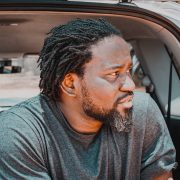 PIN IT
PIN ITSamuel Phillips is a writer, graphic designer, photographer, songwriter, singer and a lover of God. As an Afrikan content creator, he is passionate about creating a better image and positive narrative about Afrika and Afrikans. He is a true Afrikan who believes that the true potential of Afrika and Afrikans can manifest through God and accurate collaborations between Afrikans. Afrika is the land of kings, emperors, original wisdom, ancient civilizations, great men and women and not some road-side-aid-begging poor third world continent that the world finds joy in undermining.









